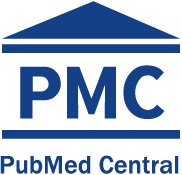Mid-level health providers: a promising resource
DOI:
https://doi.org/10.17843/rpmesp.2011.282.498Keywords:
Allied health personnel, Developing countries, Rural zones, Health personnel management, Public healthAbstract
Mid-level health providers (MLP) are health workers trained at a higher education institution for at least a total of 2-3 years, and authorized and regulated to work autonomously to diagnose, manage and treat illness, disease and impairments, as well as engage in preventive and promotive care. Their role has been progressively expanding and receiving attention, in particular in low- and middle-income countries, as a strategy to overcome health workforce challenges and improve access to essential health services and achieve the health related targets of the Millennium Development Goals. Evidence, although limited and imperfect, shows that, where MLP are adequately trained, supported and integrated coherently in the health system, they have the potential to improve distribution of health workers and enhance equitable access to health services, while retaining quality standards comparable to, if not exceeding, those of services provided by physicians. Significant challenges however exist in terms of the marginalization and more limited management support of MLP in health systems. The expansion of MLP should have priority among the policy options considered by countries facing shortage and maldistribution challenges. Improved education, supervision, management and regulation practices and integration in the health system have the potential to maximize the benefits from the use of these cadres.Downloads
Download data is not yet available.
Published
2011-06-30
Issue
Section
Symposium
How to Cite
1.
Brown A, Cometto G, Cumbi A, de Pinho H, Kamwendo F, Lehmann U, et al. Mid-level health providers: a promising resource. Rev Peru Med Exp Salud Publica [Internet]. 2011 Jun. 30 [cited 2025 Jun. 1];28(2). Available from: https://rpmesp.ins.gob.pe/index.php/rpmesp/article/view/498





























